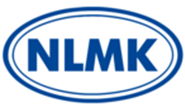Product

March 1, 2021
USW Ratifies New Contract, Ending NLMK USA Strike
Written by Michael Cowden
United Steelworkers (USW) union members have voted to ratify a new labor contract with NLMK USA, ending a strike that began more than six months ago.
There were 276 votes cast in favor of the new four-year contract and 103 against it, USW District 10 Staff Representative Todd Clary told Steel Market Update on Monday, March 1.
![]()
The new labor agreement maintains union members’ healthcare coverage, secures “reasonable” raises, and benefits both new and veteran workers, he said.
“We were able to protect the future of new employees, the union and NLMK,” Clary said.
NLMK USA President and CEO Robert D. Miller said the new contract was effective March 1 and runs through Feb. 28, 2025.
“The company is pleased that the membership is coming back to work after six months,” Miller said in an email to SMU.
“Healthcare was the single largest issue from the beginning,” he said. “We believe we have a very good offering of healthcare for the members to choose from for the next four years.”
District 10 is comprised of local USW chapters in Pennsylvania. USW Local 1016-3, which represents more than 400 employees at NLMK USA’s operation in western Pennsylvania, had been on strike since Aug. 22, 2020.
NLMK USA operates an electric-arc furnace mill in Portage, Ind., in addition to its slab-rerolling and downstream sheet processing operations in Pennsylvania.
The company has continued production in Pennsylvania with salaried staff.
Article Continues Below
{loadposition reserved_message}
“On behalf of the management team, I would like to thank the salaried workforce for their tireless efforts and dedication in running the facility over the last six months. The achievement was extraordinary,” Miller said.
NLMK USA is typically an important supplier to the domestic spot market. And so the strike has contributed to a supply shortage that has resulted in record-high flat-rolled steel prices.
Steel Market Update’s average hot-rolled coil price was at $1,210 per ton ($60.50/cwt) when this article was filed–up 19.8% from $1,010 per ton in early January and up 175.0% from a 2020 low, recorded in August, of $440 per ton.
Some market participants think the resolution of the strike – in addition to JSW Steel USA restarting its sheet mill in Mingo Junction, Ohio – could ease the supply squeeze and send prices lower. But others contend that the shortage, made worse by severe weather causing mill outages in the southern US and in northern Mexico, could persist – especially should energy demand rebound in a significant way.
By Michael Cowden, Michael@SteelMarketUpdate.com







